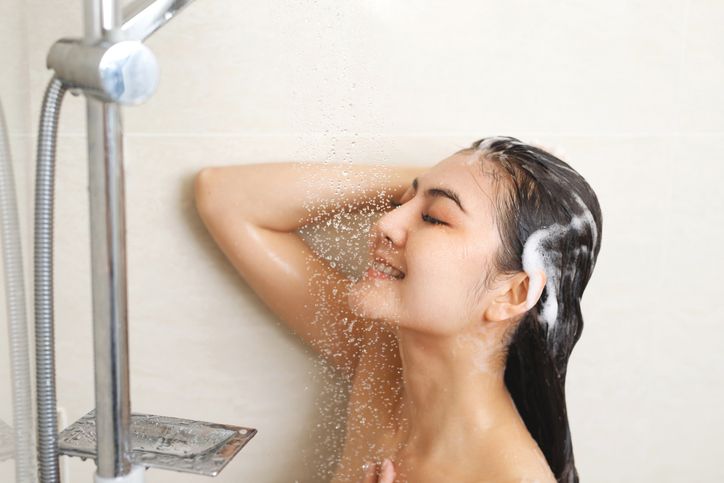
- Home
- Trend
- Weight Loss Strategies
- Acne Tips
- Hair Health Information
- Blemish Removal Tips
- Acne Scar Removal Tips
- Muscle Building Techniques
- Intimate Care Tips
- Postpartum Intimate Care
- Eye Bags Wiki
- Tips for Face Slimming
- Secret of Permanent Hair Removal
- Breast Enlargement Tips
- Cure to Snoring
- Marionette Lines
- Skin-Tightening Secrets
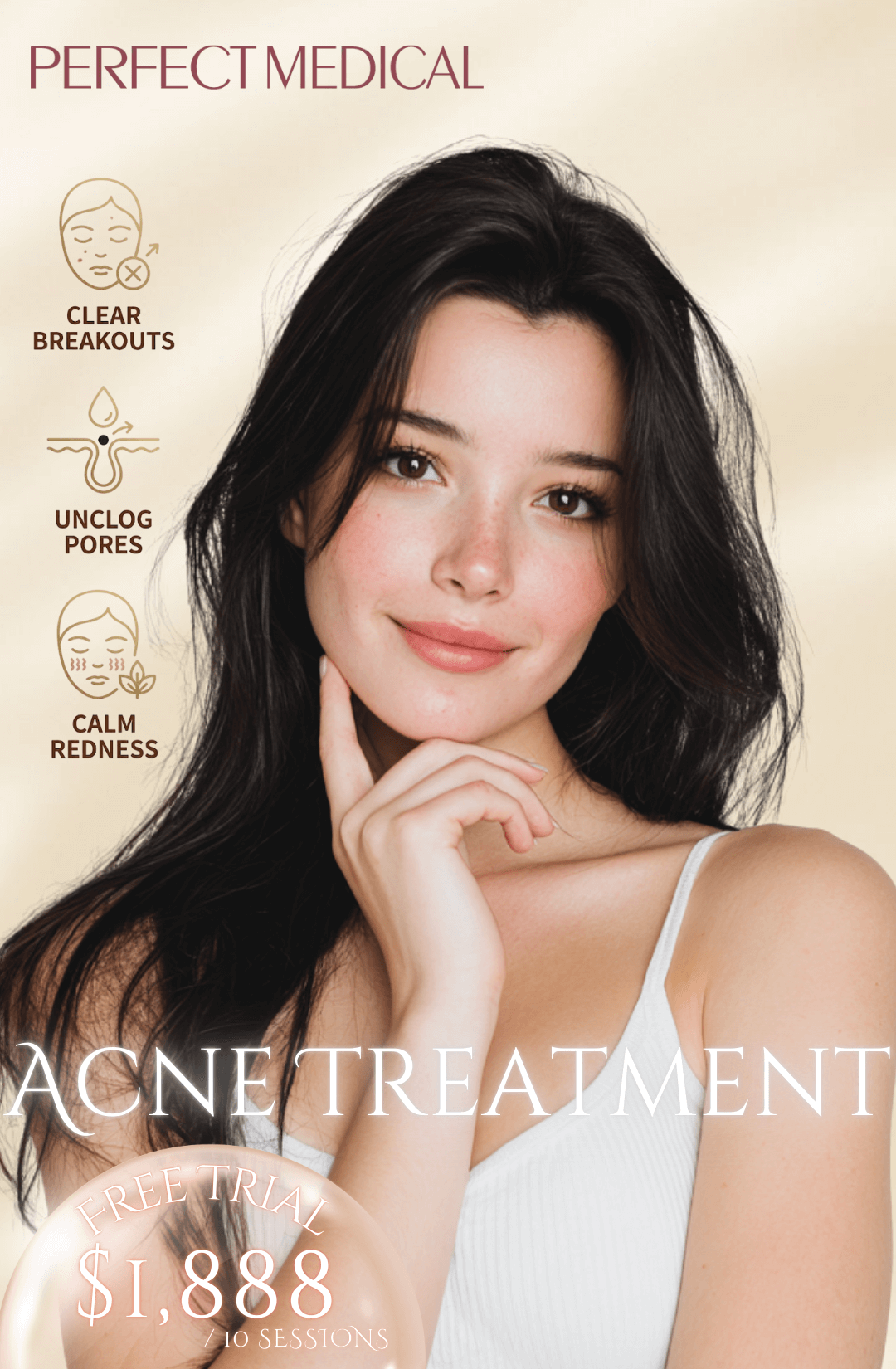
免費體驗
Acne Treatment
1 Minute Self-Registration
Date should not be before minimal date
Navigating through the Hong Kong summer with acne-prone skin can be daunting due to the complex interplay of heat, humidity, and skin physiology. Understanding the scientific basis behind why these factors exacerbate acne will help you choose the right skincare practices. Here's a detailed look into how summer conditions affect acne-prone skin and the critical role of moisturizers.
1
Acne and Humid Summer Weather
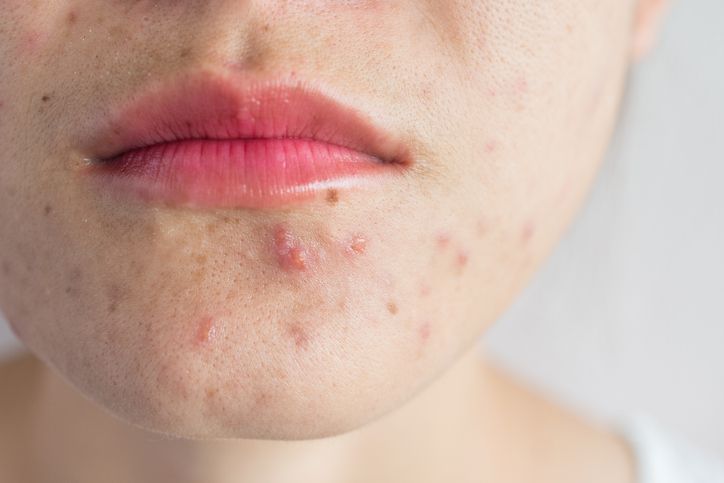
The rise in temperatures during summer impacts our skin's biochemical environment, leading to increased acne breakouts:
Increased Oil Production
Higher temperatures cause an elevation in body temperature, prompting the body to sweat in an effort to cool down. Concurrently, there's an increase in the activity of sebaceous glands, which secrete sebum. Sebum, while naturally protective, can become problematic when produced in excess, as it mixes with dead skin cells and blocks pores. This blockage forms a nutrient-rich environment for Propionibacterium acnes, the bacteria primarily responsible for acne, to grow, leading to inflammation and pustule formation.
Sweat Clogging Pores
Sweating is your body's natural cooling mechanism, but it has unintended consequences for your skin. When sweat mixes with sebum and dead skin cells, it forms a viscous emulsion that can occlude pores. The occlusion prevents sebum from being secreted normally, creating an anaerobic environment conducive to bacterial growth and acne exacerbation.
Breakdown of Natural Oils
The lipid composition of sebum can change in response to high humidity and temperature. Typically, sebum contains a balance of squalene, free fatty acids, and triglycerides. Heat can induce lipid peroxidation (oxidative degradation), turning the sebum more viscous and comedogenic (pore-blocking). This altered sebum is more likely to combine with keratinocytes (skin cells) in the follicle, leading to comedones (blackheads and whiteheads).
Increased Activity
More outdoor activities mean increased exposure to dust and environmental pollutants, which can adhere to the skin's oily surface and get embedded within pores, further exacerbating skin congestion and acne flare-ups.
Makeup Use
Makeup can create a barrier over the skin that traps heat and sweat beneath it. This not only disrupts normal thermal regulation by the skin but also mixes with sebum to form a thicker occlusive layer that is hard to cleanse, promoting acne formation.
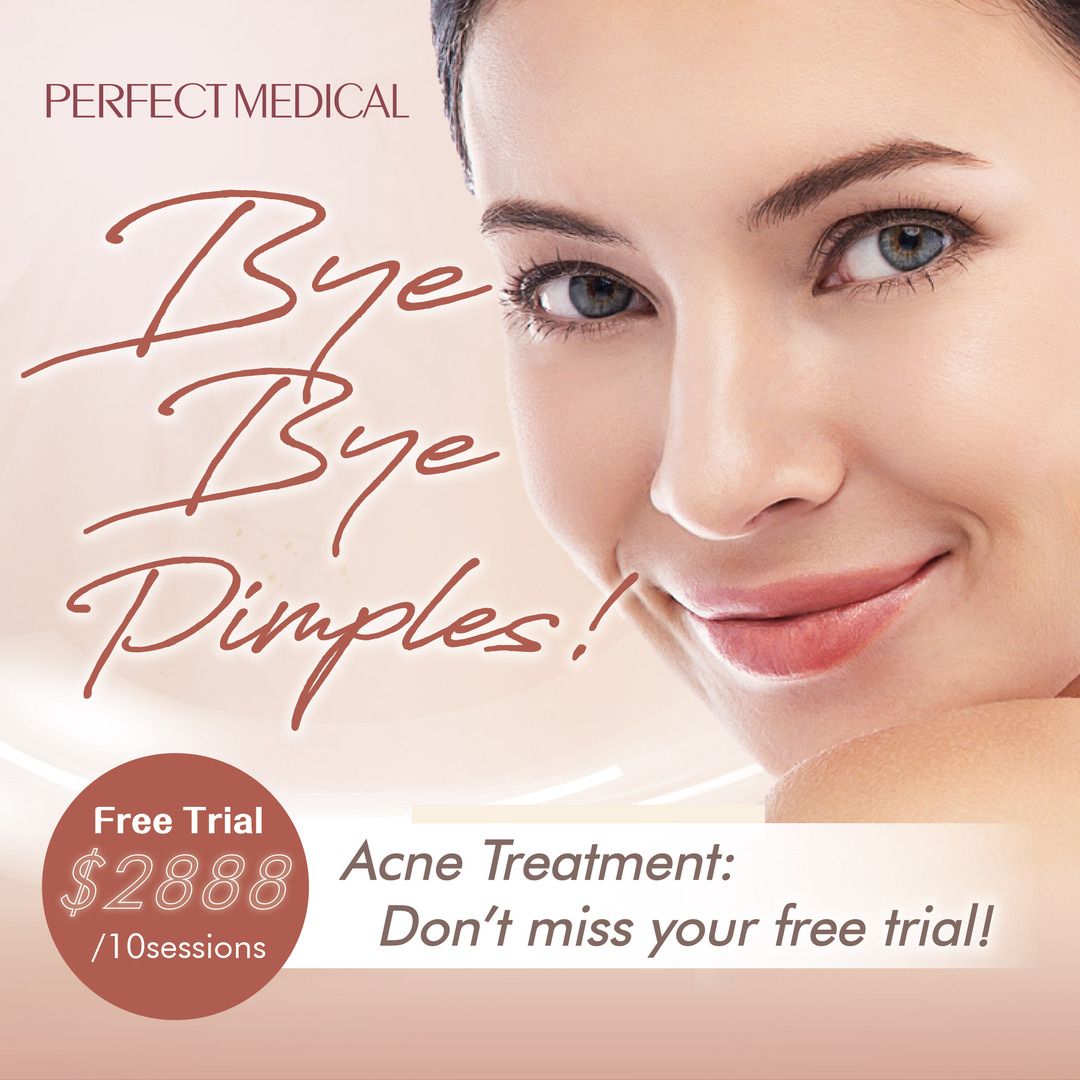
2
Why Should I Use a Daily Moisturizer for Acne-Prone Skin?

In the face of these challenges, using a daily moisturizer tailored for acne-prone skin becomes crucial:
Stay Hydrated
Despite the increase in oil production, your skin can still be dehydrated in summer. Dehydration in the skin triggers increased sebum production as a compensatory mechanism, worsening acne. A good moisturizer helps maintain optimal hydration levels in the stratum corneum (the outermost layer of the skin), crucial for barrier function and reducing sebum overproduction.
Maintain Healthy Skin Barrier
A compromised skin barrier allows easier penetration of irritants and bacteria, exacerbating acne. Moisturizers containing key ingredients like hyaluronic acid, glycerin, and ceramides help reinforce the skin barrier. Hyaluronic acid, for instance, acts as a humectant that binds water molecules to the skin, enhancing hydration and elasticity. Ceramides support the lipid matrix of the skin, enhancing barrier integrity and resilience against irritants.
- Is Mineral Foundation the Holy Grail for Acne-Prone Skin? 6 Key Benefits + Complete Application Guide
- Can Vaseline Remove Blackheads? Learn Its Properties + 6-Step Method to Say Bye Bye to Clogged Pores!
- 6 Milia-Removal Skincare Product Recommendations for Balanced, Smooth Skin
- How to Choose Pore-Refining Serums: 9 Product Recommendations for Smooth, Poreless Skin
3
Tips for Finding a Moisturizer for Acne-Prone Skin
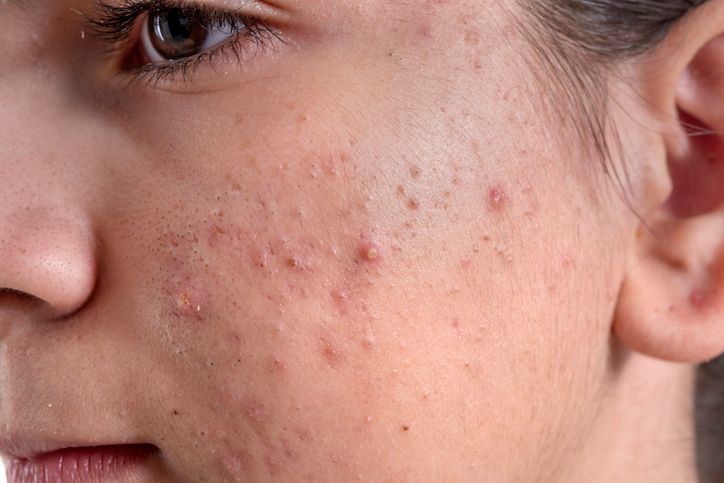
Choosing the right moisturizer for acne-prone skin is vital, especially during the challenging weather conditions of summer 2026. Here’s how to identify the best moisturizer that won’t exacerbate your acne but instead will support and improve your skin’s health.
Lightweight, Oil-Free, Non-Comedogenic
The ideal moisturizer for acne-prone skin should be lightweight, oil-free, and non-comedogenic. These characteristics ensure that the product won’t weigh down your skin or leave a greasy residue that can lead to further clogged pores. Oil-free moisturizers are specifically formulated to provide hydration without adding extra oil to your already oily or acne-prone skin.
SPF
Sun protection is crucial for all skin types, but if you have acne-prone skin, choosing a moisturizer with SPF can be particularly beneficial. Sun exposure can not only increase the risk of skin cancer but can also exacerbate acne scars, making them more difficult to fade. A daily moisturizer with at least SPF 30 will help protect your skin from the sun's harmful UV rays while taking care of its moisture needs.
Ingredients for Acne-Prone Skin
Selecting a moisturizer with the right active ingredients can make a significant difference in managing acne. Here are some key ingredients to look for:
- Hyaluronic Acid: Helps retain moisture to keep your skin hydrated without clogging pores. It’s excellent for all skin types, including oily and acne-prone skin. - Niacinamide: Reduces inflammation and redness, and can improve skin barrier function, making it harder for irritants and bacteria to cause acne. - Benzoyl Peroxide: An antimicrobial agent that kills acne-causing bacteria and helps clear existing breakouts. - Tea Tree Oil: Known for its natural anti-inflammatory and antimicrobial properties, making it effective at calming redness, swelling, and inflammation. - AHA (Glycolic Acid) and BHA (Salicylic Acid): Exfoliants that help remove dead skin cells and clear pores, which can prevent breakouts. Salicylic acid is particularly effective for oily skin. - Azelaic Acid: Helps refine the skin’s surface and reduce bacteria growth, as well as diminish acne scars. - Retinol: Promotes skin renewal and may help reduce the appearance of acne scars over time. - Vitamin C: Helps to brighten the skin and may also promote collagen production, improving the skin's healing process. - Sulfur: Another ingredient that helps remove dead skin cells and excess oil, which can prevent acne flare-ups.
Incorporating these ingredients into your skin care routine can not only help hydrate your skin but also address the underlying causes of acne, leading to clearer, healthier-looking skin.

4
15 Best Moisturizers for Acne-Prone Skin
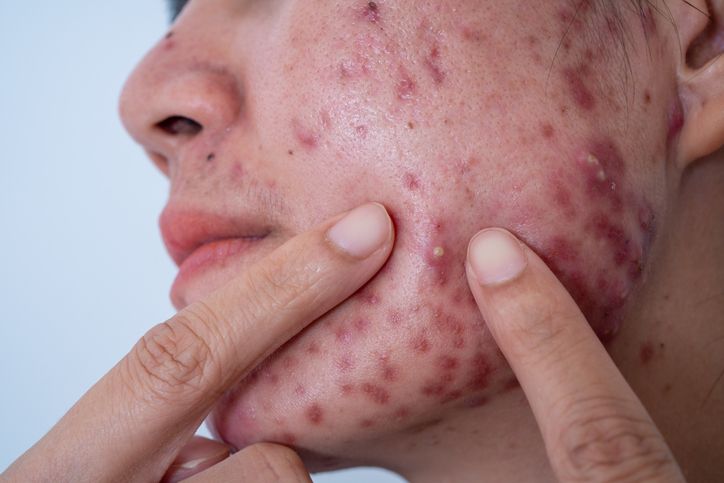
Paula's Choice CLEAR Oil-Free Moisturizer
- Texture & Scent: This moisturizer features a light, fluid texture that sinks seamlessly into the skin, leaving no residue, paired with a subtly refreshing scent that soothes the senses. - Key Ingredients: Formulated with niacinamide and ceramides to strengthen the skin’s barrier while controlling oil levels, making it ideal for those with oily and acne-prone skin. - Unique Traits: The moisturizer is designed to provide hydration without adding shine or clogging pores, thanks to its oil-free and non-comedogenic properties. - Pros: Effectively moisturizes acne-prone skin without causing breakouts or excessive oiliness. - Cons: May not provide enough moisture for those with areas of dry skin in addition to acne-prone zones.
Cerave PM Facial Moisturizing Lotion
- Texture & Scent: It boasts a lightweight and smooth texture that absorbs quickly, leaving a barely-there feel, fragrance-free to avoid irritating sensitive skin. - Key Ingredients: Contains ceramides, niacinamide, and hyaluronic acid, all of which help restore and maintain the skin’s natural barrier while providing long-lasting hydration. - Unique Traits: Enhanced with MVE technology for controlled release of ingredients throughout the night, ensuring continuous hydration and nourishment. - Pros: Supports skin repair and hydration overnight, crucial for acne-prone skin’s recovery. - Cons: Some users might prefer a richer texture for night-time hydration.
La Roche-Posay Toleriane Double Repair UV SPF Moisturizer
- Texture & Scent: Creamy yet fast-absorbing formula with a gentle scent, tailored for sensitive skin types. - Key Ingredients: Features a combination of niacinamide, glycerin, and ceramides, with added broad-spectrum SPF 30 to protect against UV rays. - Unique Traits: Dual action of repairing the skin barrier and providing sun protection without causing breakouts. - Pros: Offers both moisturization and SPF protection without compromising on texture or causing acne flare-ups. - Cons: SPF scent may not be appreciated by all users, especially those sensitive to sunscreen odors.
CosRx AC Collection Lightweight Soothing Moisturizer
- Texture & Scent: Ultra-lightweight and cooling gel texture that calms skin upon application, fragrance-free to suit reactive skin. - Key Ingredients: Infused with Centella Asiatica extract and madecassic acid to soothe inflamed or irritated skin effectively. - Unique Traits: Tailored for acne-prone and sensitive skin, this moisturizer helps reduce redness and heal acne without being heavy. - Pros: Great for humid climates and oily skin types, providing moisture without heavy ingredients. - Cons: Might not be hydrating enough for those with combination skin types in drier climates.
COSRX Snail Mucin 92% Moisturizer
- Texture & Scent: Features a unique, snail mucin-enriched formula that is surprisingly lightweight and scent-free. - Key Ingredients: Boasts a high concentration of snail secretion filtrate, known for its healing and moisturizing properties. - Unique Traits: Helps repair damaged skin and promotes a clear, rejuvenated complexion with its high efficacy ingredients. - Pros: Accelerates the healing of acne scars and hydrates deeply without adding oiliness. - Cons: The texture derived from snail mucin might not be appealing to everyone.
Tatcha The Water Cream
- Texture & Scent: Luxuriously light water cream that spreads smoothly and absorbs instantly, with a clean, subtle botanical scent. - Key Ingredients: Includes Japanese wild rose to tighten pores and smooth skin texture, along with Tatcha's signature Hadasei-3 complex, a blend of anti-aging Japanese superfoods that restores a healthy glow. - Unique Traits: The formula is oil-free and non-comedogenic, making it ideal for hydrating oily and acne-prone skin without clogging pores. - Pros: Leaves skin feeling soft and hydrated with a matte finish, perfect for reducing the appearance of pores and controlling excess sebum. - Cons: The premium price might be a concern for budget-conscious shoppers.
Aveeno Clear Complexion Daily Acne Facial Moisturizer
- Texture & Scent: This moisturizer has a soothing, lightweight texture that moisturizes without feeling heavy, featuring a faint, clean scent. - Key Ingredients: Formulated with salicylic acid to fight existing acne and prevent new breakouts, and soy complex to even skin tone and texture. - Unique Traits: Specifically designed to help clear up blemishes and breakouts while being gentle enough for daily use. - Pros: Effectively reduces acne while providing the moisture necessary for acne-prone skin. - Cons: Salicylic acid may dry out or irritate very sensitive skin types.
Avène Hydrance Aqua-Gel Moisturiser
- Texture & Scent: Cool gel formula that feels refreshing upon application, subtly scented to enhance the soothing experience. - Key Ingredients: Contains Avène Thermal Spring Water to soothe and soften the skin, along with Cohederm, a patented lipidic complex that provides lasting hydration. - Unique Traits: Acts as an all-in-one care that can be used as a day cream, night mask, and eye cream, suitable for all skin types, including sensitive skin. - Pros: Versatile and deeply hydrating, enhancing skin's natural resilience. - Cons: Gel texture might not be preferred by those who like cream-based moisturizers for intensive hydration.
Clinique Moisture Surge 100 Hour Auto-Replenishing Hydrator
- Texture & Scent: Ultra-light, refreshing gel-cream that absorbs quickly, fragrance-free to suit sensitive skin preferences. - Key Ingredients: Aloe bio-ferment and hyaluronic acid combo help deeply hydrate and lock in moisture, promoting an elastic and plump skin appearance. - Unique Traits: Advanced hydration technology allows it to actively replenish moisture for up to 100 hours, even after washing your face. - Pros: Long-lasting hydration that keeps skin feeling hydrated without any sticky residue. - Cons: Some users may find the hydration too intense if they prefer a lighter daily moisturizer.
PanOxyl PM Balancing Repair Moisturizer
- Texture & Scent: Lightweight lotion that soothes and repairs the skin overnight, with minimal scent to ensure no irritation during sleep. - Key Ingredients: Ceramides and hyaluronic acid work together to restore the skin barrier and retain moisture, complemented by niacinamide to reduce inflammation. - Unique Traits: Formulated to balance skin's moisture while addressing issues related to acne treatments, such as dryness and irritation. - Pros: Supports the skin's recovery process during the night, optimizing the effects of acne treatments. - Cons: Might not be sufficiently hydrating for very dry skin types or in harsh winter conditions.
Cetaphil Fragrance Free Facial Moisturizing Lotion
- Texture & Scent: Gentle, fragrance-free lotion that provides adequate hydration without a heavy or greasy feel. - Key Ingredients: Includes a blend of glycerin, avocado oil, and vitamin E to nourish and protect the skin, enhancing its smoothness and resilience. - Unique Traits: Specifically designed for sensitive and acne-prone skin, with a hypoallergenic formula that minimizes the risk of skin irritation. - Pros: Moisturizes effectively while being gentle enough not to trigger acne or irritate sensitive skin. - Cons: Those with oilier skin might find it slightly heavier than other lightweight options.
Neutrogena Hydro Boost Hyaluronic Acid Water Gel
- Texture & Scent: This moisturizer has a unique water-gel texture that feels incredibly light and refreshing on the skin, with a subtle, clean scent that is invigorating but not overpowering. - Key Ingredients: Packed with hyaluronic acid to ensure deep hydration by attracting moisture and locking it in. This key ingredient is essential for maintaining skin's hydration levels without contributing to oiliness. - Unique Traits: The formula is designed to be quickly absorbed, leaving the skin feeling smooth and supple without any greasy residue, making it perfect for oily and acne-prone skin. - Pros: Delivers intense hydration while being lightweight, ideal for daily use in humid climates. - Cons: While suitable for most skin types, it may not provide enough moisture for extremely dry skin that requires more substantial emollient ingredients.
Neutrogena Oil-Free Moisture with Sunscreen
- Texture & Scent: Lightweight and non-greasy, this moisturizer spreads easily and absorbs quickly, offering a fragrance-free experience that is ideal for sensitive skin. - Key Ingredients: Contains broad-spectrum SPF 35 to protect against UVA and UVB rays without causing breakouts, alongside glycerin to hydrate and improve the skin barrier. - Unique Traits: This moisturizer doubles as a sunscreen, providing excellent protection without clogging pores or causing acne, thanks to its oil-free formula. - Pros: Excellent for everyday use, providing both hydration and effective sun protection without the heavy feel typical of sunscreen. - Cons: Users looking for very high SPF coverage might need to reapply more frequently or use in conjunction with additional sun protection products.
The Ordinary Natural Moisturizing Factors + HA
- Texture & Scent: Has a rich, creamy texture that feels nourishing yet absorbs quickly, without any added fragrances to reduce potential skin irritation. - Key Ingredients: Features a powerful blend of amino acids, fatty acids, triglycerides, urea, ceramides, phospholipids, glycerin, and hyaluronic acid, which together replenish and protect the skin's natural barrier. - Unique Traits: This formula mimics the natural moisturizing factors found in the skin, enhancing moisture retention and providing long-lasting hydration. - Pros: Highly effective in boosting skin moisture levels, making it a favorite for those with dry areas, while still being suitable for acne-prone skin due to its non-comedogenic nature. - Cons: The richer texture might feel too heavy for those with extremely oily skin types.
Peach Slices Acne Oil-Free Moisturizer
- Texture & Scent: This ultra-light formula glides on the skin smoothly and absorbs rapidly, leaving a matte finish without any discernible scent. - Key Ingredients: Salicylic acid is a key component, aiding in the prevention of new acne by exfoliating the skin and clearing pores. Additionally, cucumber and peach extracts offer soothing and antioxidant benefits. - Unique Traits: Specifically designed to fight acne while providing moisture, this product is oil-free and non-comedogenic, ensuring it doesn't contribute to further breakouts. - Pros: Ideal for managing oily, acne-prone skin by providing essential hydration without excess shine or oiliness. - Cons: May not be hydrating enough for users with combination skin who also experience dry patches.
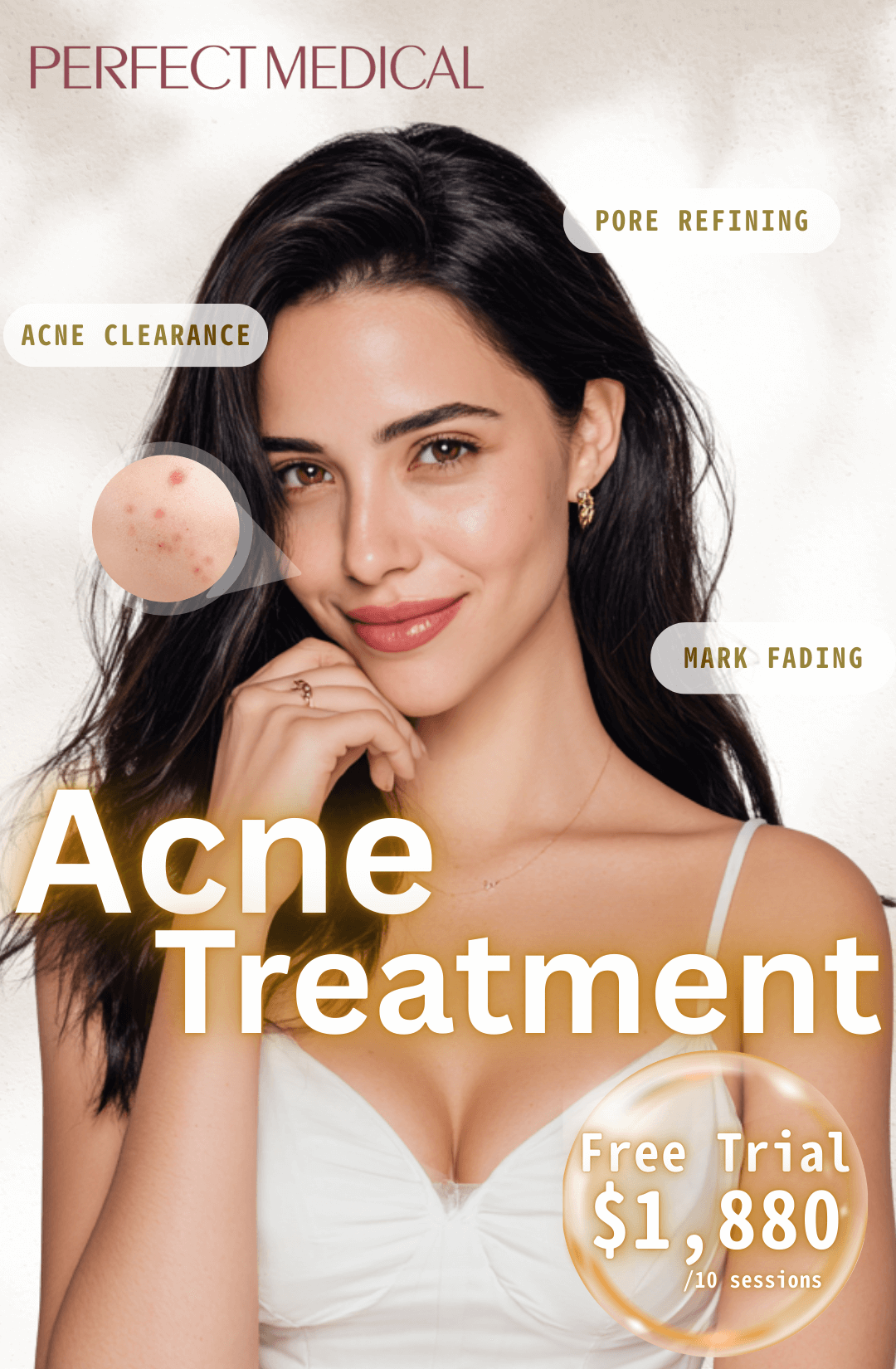
免費體驗
Acne Treatment
1 Minute Self-Registration
Date should not be before minimal date
5
How can Each Skin Type be Acne-Prone?
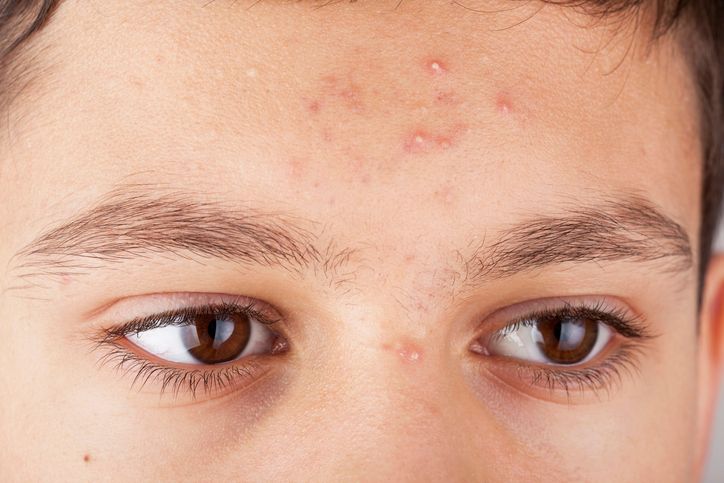
Each skin type has unique physiological characteristics and responses to external and internal factors, which can predispose it to acne. Understanding the pathophysiology behind these processes is key to effective prevention and treatment.
Dry Skin
- Harsh Cleansers & Over-exfoliation: Overuse of harsh cleansers or excessive exfoliation can disrupt the skin's lipid barrier, leading to transepidermal water loss (TEWL). This dehydration signals the sebaceous glands to produce more sebum as a compensatory mechanism, which can mix with dead skin cells and debris to clog pores and promote acne. - Irritating Products: Skincare products with high concentrations of alcohol, fragrances, or other irritants can further compromise the skin barrier integrity, enhancing susceptibility to infections and inflammation, which are conducive to acne outbreaks. - Lack of Moisture: Dry skin tends to have a compromised stratum corneum (the outermost layer of the epidermis), which can lead to an accumulation of dead skin cells that block pores. Additionally, without adequate hydration, the skin's natural desquamation process (shedding of dead skin cells) is impaired, increasing the risk of comedones (blackheads and whiteheads).
Oily Skin
- Excess Oil Production: An overproduction of sebum, often driven by genetic factors or hormonal imbalances (such as elevated androgens), can lead to oily skin. The excess sebum mixes with dead skin cells in the pilosebaceous unit (a structure consisting of hair, hair follicle, and sebaceous gland), forming a plug that can become inflamed and evolve into acne. - Improper Cleansing: Inadequate or excessive cleansing disrupts the skin’s natural microbiome and pH balance. Insufficient cleansing leaves excess sebum and dirt on the skin, which clogs pores, while over-cleansing can strip away essential lipids, exacerbating sebum production as a rebound effect.
Combination Skin
- T-Zone Issues: Combination skin features an oily T-zone and dry cheeks, presenting challenges of both skin types. The T-zone’s excessive sebum production can lead to clogged pores, while the dry areas may suffer from barrier dysfunction and scaling, which can trap bacteria and sebum, leading to acne. - Improper Skincare Routine: Using products that do not address the specific needs of each facial area can lead to suboptimal care, exacerbating dryness, oiliness, and susceptibility to acne. It's crucial to apply zone-specific treatments to balance the skin's varied demands.
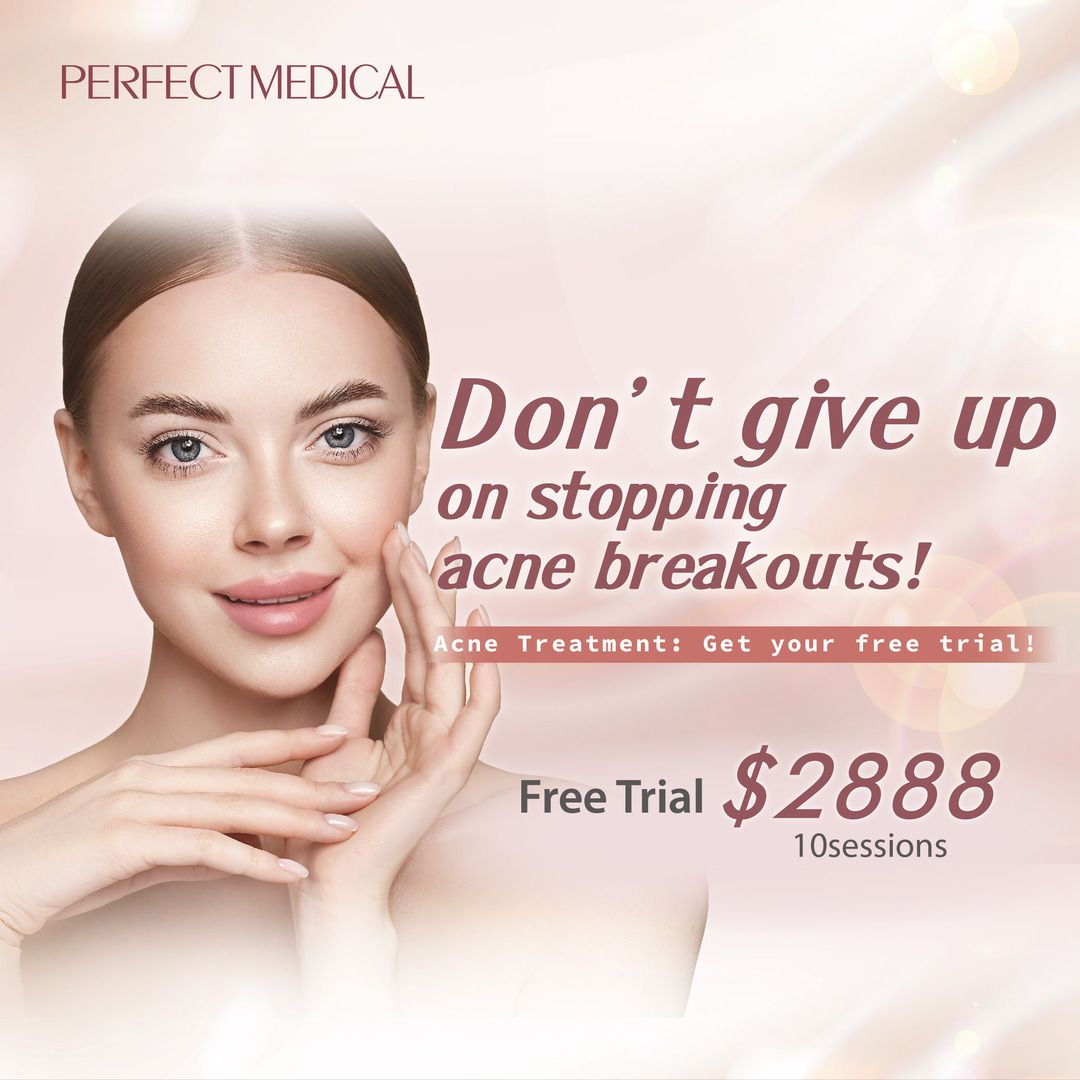
6
Other Causes of Acne-Prone Skin
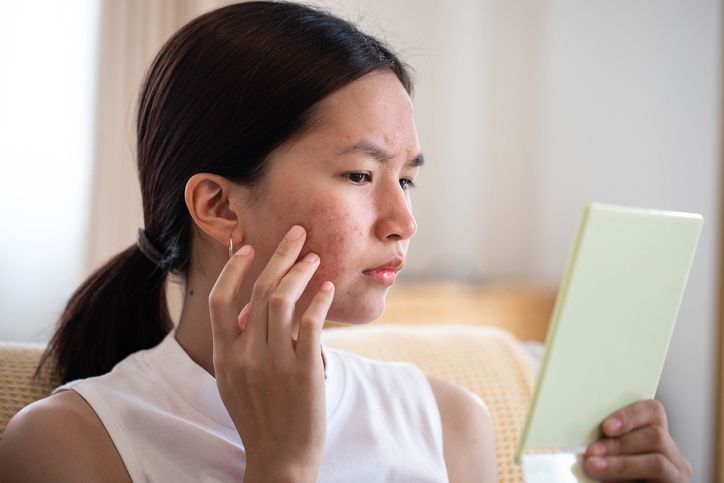
Beyond hot, humid weather, several other factors contribute to the development of acne:
Hormones
Androgens such as testosterone stimulate the sebaceous glands to produce more sebum. During hormonal fluctuations—like puberty, menstrual cycles, or pregnancy—increased sebum production can lead to blocked pores and subsequent acne.
Dead Skin Cells
Impaired shedding of dead skin cells can cause hyperkeratinization, where the skin cells accumulate and stick together with sebum, blocking the follicle opening and forming a comedone.
Diet
Foods with a high glycemic index cause a spike in insulin levels, which can stimulate androgen secretion, increase sebum production, and promote follicular hyperkeratinization—all contributing to acne development.
Stress
Chronic stress induces the release of cortisol and other adrenal steroids, which can stimulate the sebaceous glands and exacerbate acne.
Hygiene
Poor skincare hygiene can lead to an accumulation of sebum, bacteria, and dead skin cells on the skin surface, exacerbating acne conditions.
Medications
Certain medications like corticosteroids, androgens, and lithium are known to provoke or worsen acne as a side effect.
Genetics
Genetic predisposition plays a significant role in the development of acne; having family members with acne increases the likelihood of developing similar conditions due to inherited tendencies in sebaceous gland activity and hormonal responses.
- Exfoliation: Why Do You Need To Exfoliate? Is It Safe For Sensitive Skin?
- Retinoic Acid Guide 2026: 13 Things To Know About Retinoic Acid And Its Side Effects
- 9 Coconut Oil Skincare Uses: Editor Had Breakouts After Using It To Remove Makeup For 3 Days?
- Enlarged Pores—What to Do? 9 Common Mistakes to Avoid, 5 Ways to Refine Pores + 6 Product Recommendations!
7
The Acne Treatment: All in 1 Exfoliate, Soothe, Hydrate for a Refreshed, Acne-Free Face!
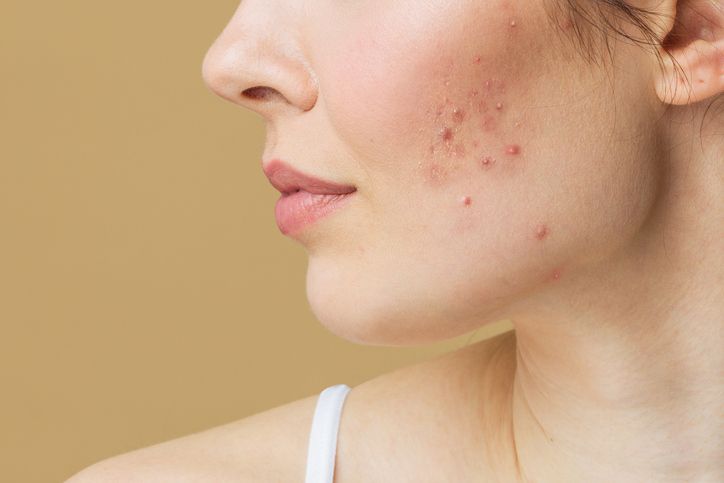
Perfect Medical's Acne Treatment is your ultimate partner in combating acne throughout the year!
Introducing the advanced vacuum dermabrasion technology that effortlessly removes pore blockages while exfoliating the sources of acne—oil, dirt, and dead skin cells.
Once your skin is thoroughly cleansed, a specialized, medical-grade hydrating essence is applied, deeply moisturizing your skin. This intense hydration helps calm your skin, diminishes sebum production, and prevents the onset of inflammation and bacterial acne growth, while initiating deep-skin collagen repair for firm, radiant skin.
Ultimately, your skin will appear refreshed, healthy, and free from acne!
The Acne Treatment is more than just a cleaning process; it's a holistic, long-term skincare regimen suitable for all skin types.
This cutting-edge technology manages acne-causing bacteria, wards off future outbreaks, and addresses various issues such as pimples, blackheads, and oily skin, leaving your complexion smooth, clear, and impeccably soft!
Perfect Medical’s Acne Treatment is gentle, non-irritating, and does not cause any wounds, ensuring durable outcomes.
Only a few sessions are required, with each one being brief and involving no downtime—you can continue with your daily activities immediately.
Take advantage of a free trial of Perfect Medical’s The Acne Treatment today!
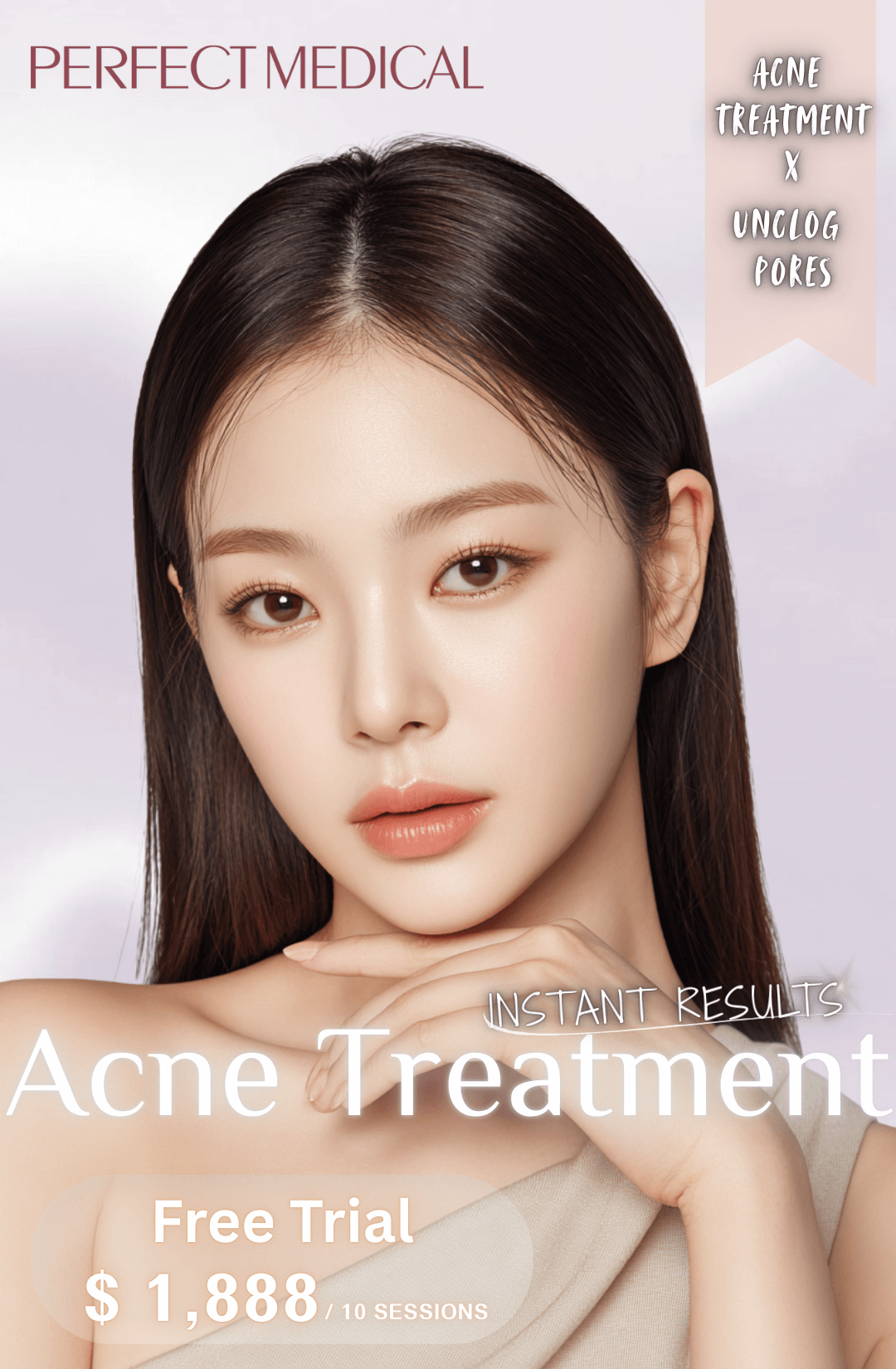
免費體驗
Acne Treatment
1 Minute Self-Registration
Date should not be before minimal date
FAQ

Why is it important to use a moisturizer if you have acne-prone skin?
Using a moisturizer helps maintain your skin’s hydration levels, which can prevent your glands from producing excess oil—a common cause of acne.
What type of moisturizer is best for oily, acne-prone skin?
Gel-based moisturizers are ideal for oily skin as they provide necessary hydration without adding extra oil to the skin.
How does moisturizer fit into an acne treatment routine?
Moisturizer should be applied after cleansing and any acne treatments but before sunscreen. It helps mitigate dryness and irritation often caused by acne medications.
Are there moisturizers that help reduce acne scars?
Yes, look for moisturizers containing ingredients like alpha hydroxy acids (AHAs) and vitamin C, which can help reduce the appearance of acne scars over time.
What should I avoid in a moisturizer for acne-prone skin?
Avoid ingredients like coconut oil or cocoa butter which can clog pores. Also, steer clear of fragrances and alcohols that can irritate sensitive acne-prone skin.





